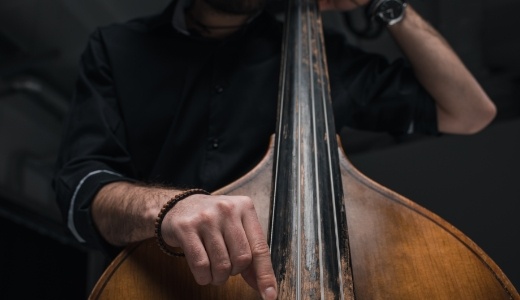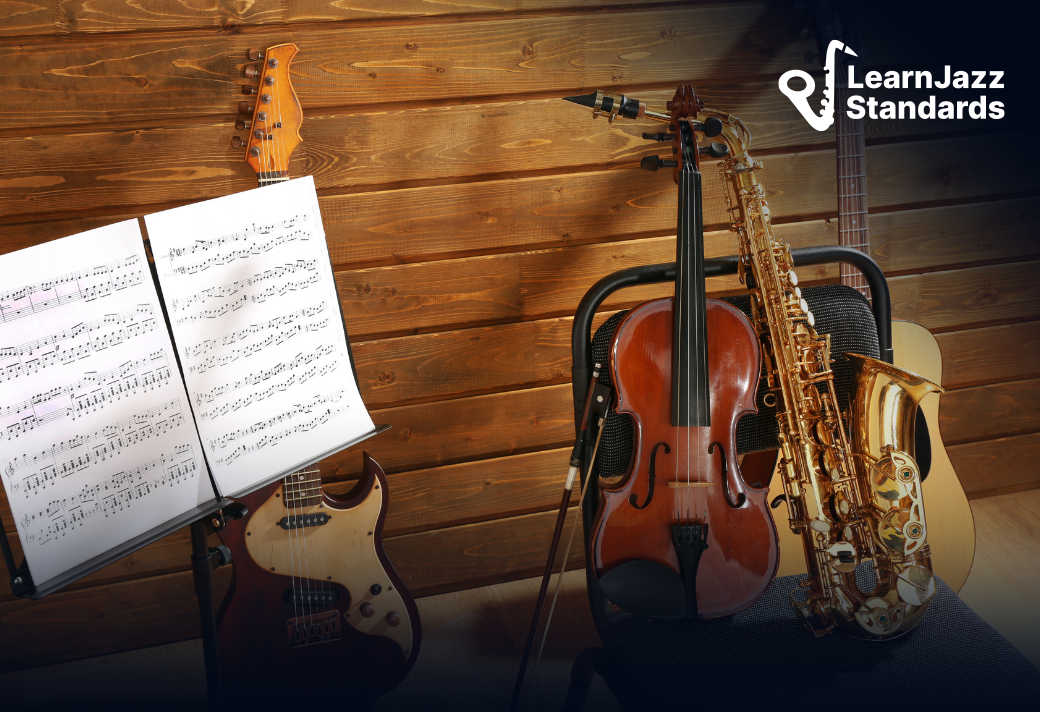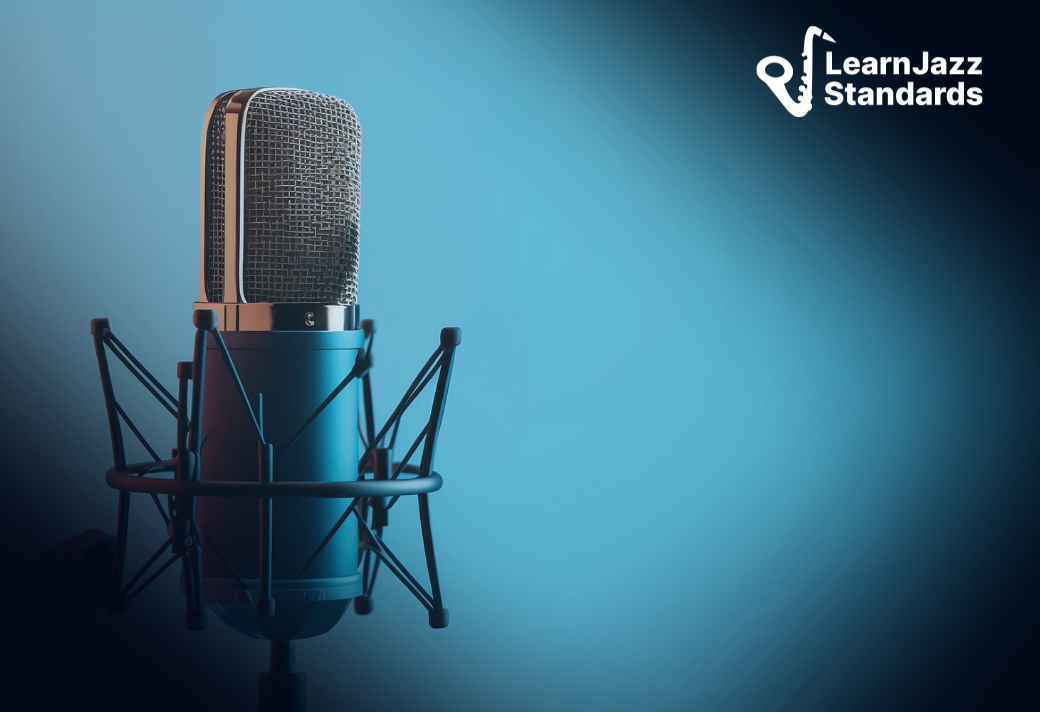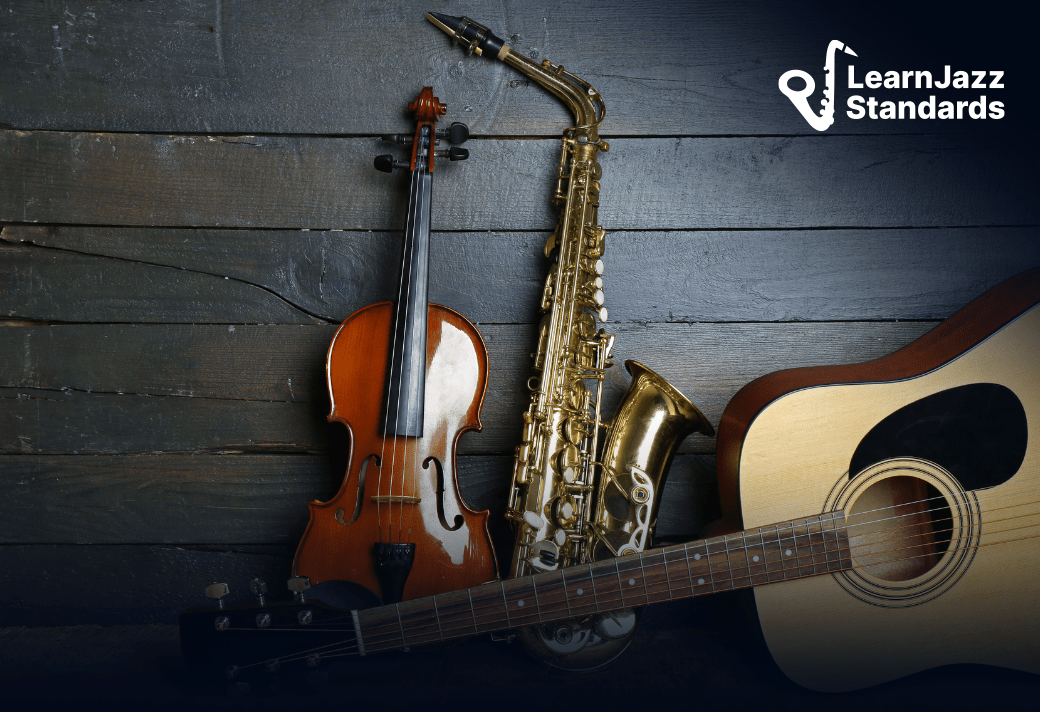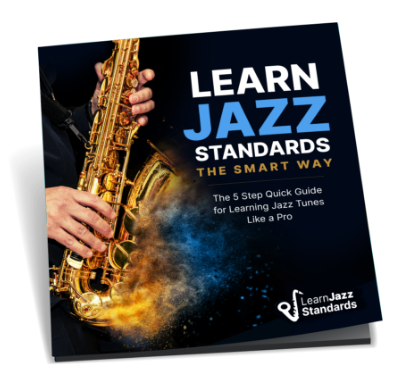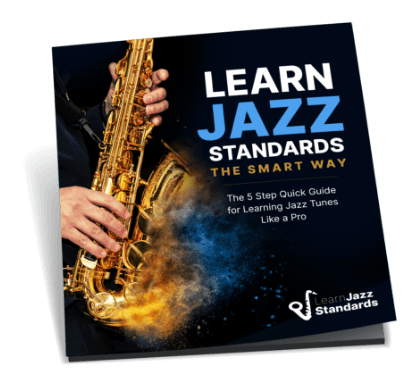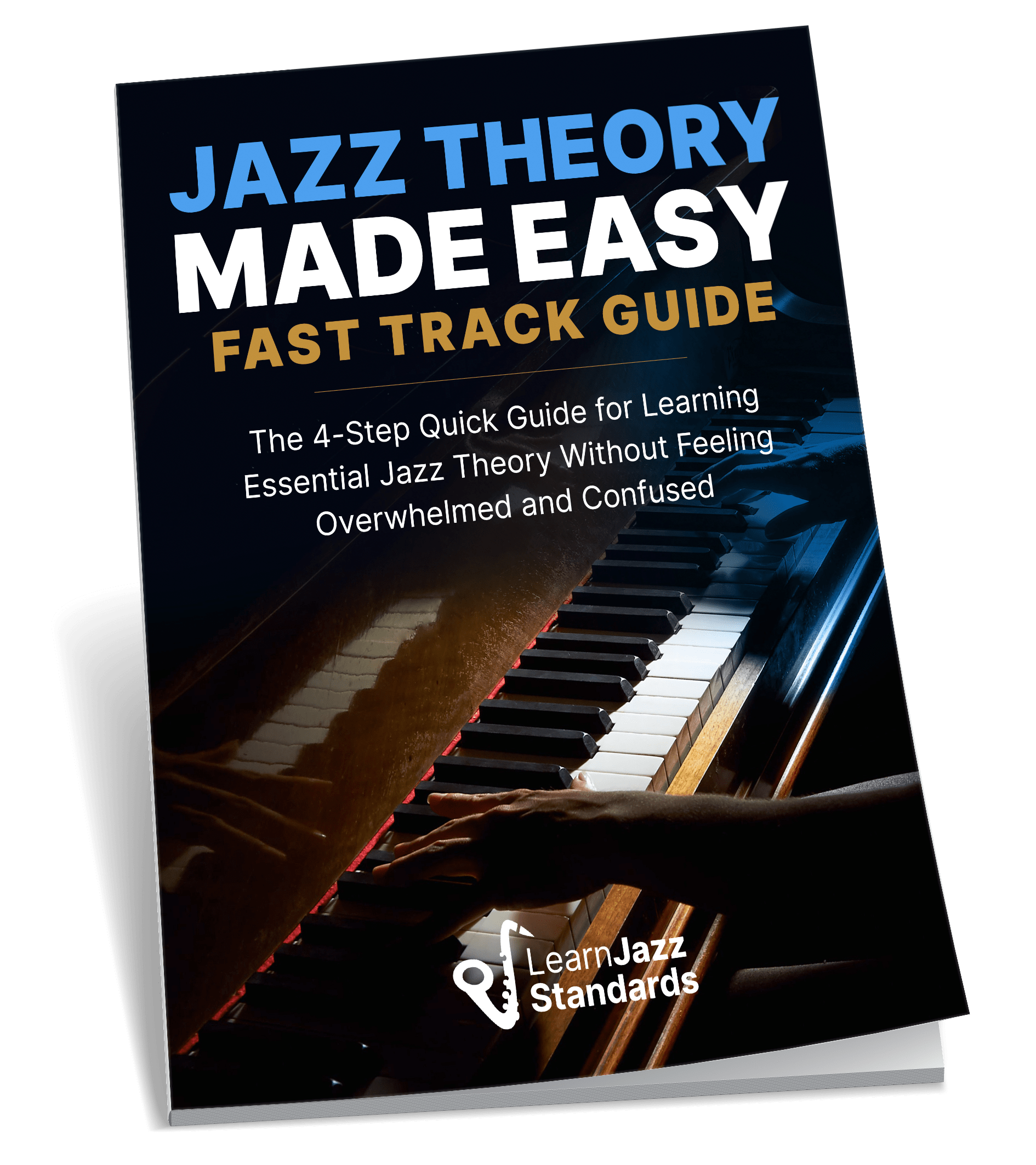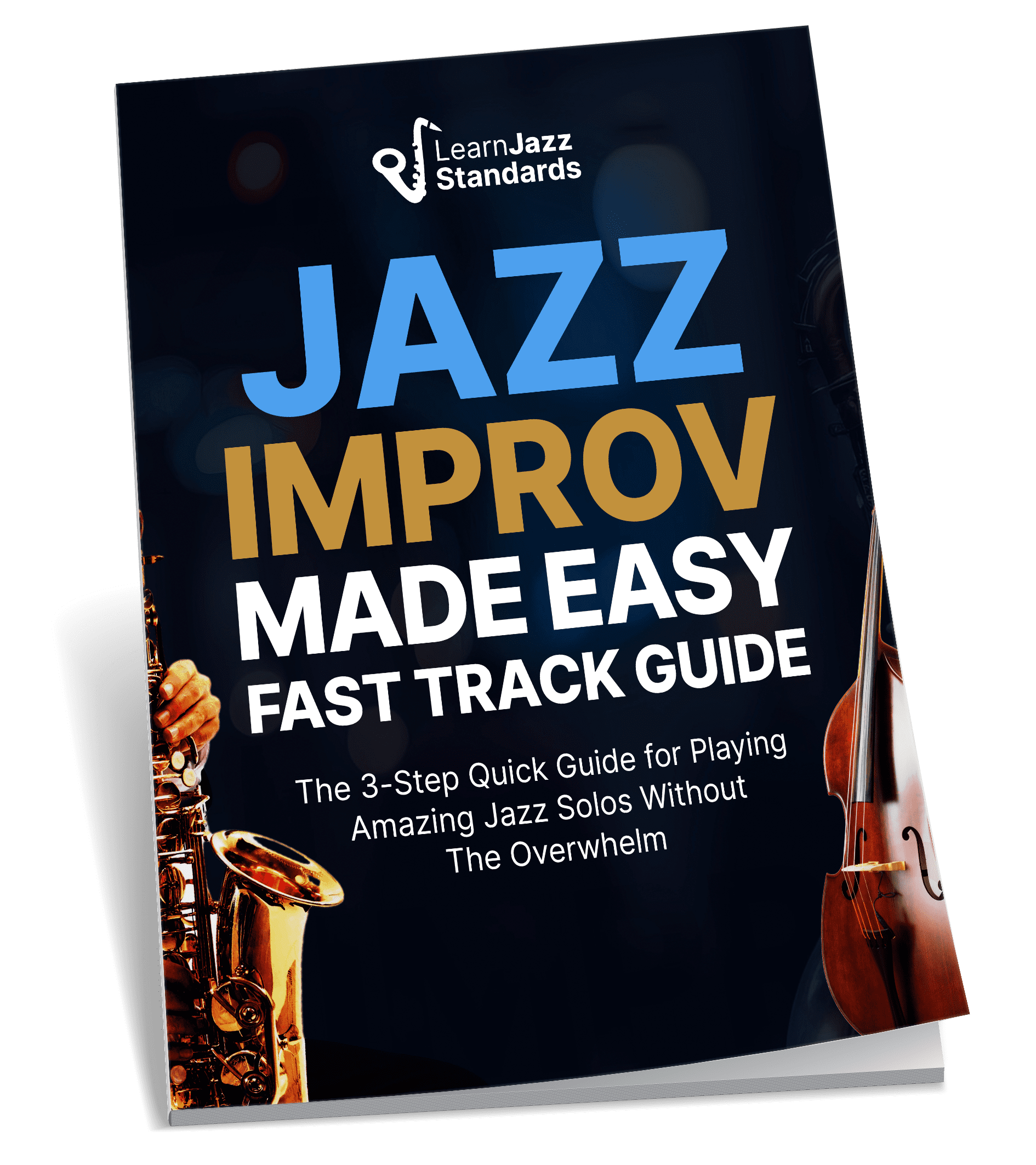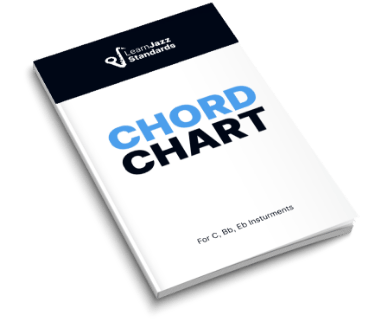Welcome to episode 91 of the LJS Podcast where today we are talking with Afro percussion maker and musicologist Joe Agu all about African music and the origins of jazz. Jazz is African American music, but it didn’t just start in New Orleans. It’s roots go way back into African music and culture. It’s important to understand where this music comes from. Listen in!
Listen to episode 91
Today’s episode is a little bit different than the regular stuff we talk about. Usually, we are digging deep into music theory, jazz improvisation, learning repertoire, and all kinds of other lessons. But today’s episode is of equal importance.
If we want to truly understand jazz, we have to explore its roots. Jazz is African American music and the genre as we know it formed in New Orleans. But the origins of jazz started way before then with its roots in Africa.
In today’s episode, I have on special guest Joe Agu to talk about African music and how it completely changed everything when it came over to the New World. Most notably, Joe talks about how important it is for us as musicians to understand where different kinds of music come from.
Joe lives in the Silicon Valley out in California, but he’s originally from Nigeria. He truly understands African music, the culture, the rich language and tradition.
If we don’t understand the culture behind jazz and African music, we are missing out an a really important part of the picture.
Here are some of the things we talk about:
-
The characteristics of African music.
-
The African slave trade and how the music spread.
-
European music vs. African music.
-
How jazz emerged in New Orleans.
-
The oral tradition of African music.
This is a really important episode, so be sure to listen in! I learned so much from Joe and I’m sure you will to. Even though we just barely scratch the surface on this topic, this serves as an excellent introduction into understanding African music and how music like jazz emerged from it.
Important links
Afrorhythms.com[vc_separator]
Free Guide to learn standards by ear: Learn Jazz Standards the Smart Way
Read the Transcript
Brent: Hey, hey. What’s up? My name is Brent. I am the jazz musician behind the website LearnJazzStandards.com, which is a blog and a podcast all geared towards helping you become a better jazz musician. Welcome back if you are a regular listener. If this is your first time ever listening, thank you so much for being here.
Now on today’s episode, I have a very special guest joining us today. And this episode is a lot different from other episodes that we normally do on this show and that excites me, actually, because this is a really important topic. Normally, we talk about music theory, we’re talking about jazz improvisation, tips, tricks, lesson, all this stuff. But today, we’re going to talk about something really important that we’ve never talked about on this show before, but it really deserves a lot of attention. And that is the history of African music and how that relates to jazz. Where did jazz actually come from? As we know, jazz is African American music. But a lot of people like to start the story at New Orleans, as the origin place, but truly, it starts way before then with its roots in Africa.
So joining me on the show today is a very special guest. He is an Afro-percussion maker and a musicologist. His name is Joe Agu. And it’s actually really cool how I got in touch with Joe. He follows my newsletter, Learn Jazz Standards, and he sent me an email and started up a conversation with me about this, and I just really enjoy talking to Joe. He’s a really nice guy, really cool dude, knows so much about this topic of African music and the history of it, that I thought it would be an amazing idea to have him on this show to share his expertise with us and obviously talk about something that I’m not qualified to talk about.
So I learned so much from today’s conversation. I know you are too. Please, this is really important. This is a really important episode. If you don’t understand where this music came from, where jazz came from and its roots, and if you don’t understand the culture at least to some extent, it’s hard to really understand the essence of the music. So this, even though this isn’t an episode, a lesson, or anything like that, it truly is important to understand the roots of this music, to ultimately be able to play jazz and other improvisational African styles of music.
Okay, so without further ado, let’s get on Joe Agu.
Alright, now welcoming on the show today is Afro-percussion maker and musicologist, Joe Agu. Joe, thank you so much for being on the show today.
Joe: Thank you, Brent.
Brent: Now, the way we met, or the way we got in touch with each other, is very interesting. You just simply emailed me one day, in response to a newsletter blast that I had come out with. And I really enjoyed conversing with you via email about this topic of understanding the roots of jazz, or the roots of any kind of music, and how important that is. So I’m really excited to talk to you about this because you really know your stuff and again, I just thank you so much for being here today.
But before we start that, I know that my audience probably doesn’t know who you are, so why don’t you give just a quick, two minute Joe Agu bio, let everybody know who you are, where you’re from.
Joe: Certainly. My name is Joe Agu and I am a member of the Igbo ethnic group. And the Igbo is in the South East of Nigeria. I live in Silicon Valley. I still live with my family. I have three kids. So I was a designer for many, many years, doing all these things. And eventually, I just said to myself, I would like to do something that has a human touch to it, and I asked myself, “What would it be?” And I said … It took me some time, to decide on what it is, but I easily could see that the music of African diaspora is a big contribution that we have made to mankind, which is our music, and since then we make various hand percussions and have been an exhibitor at NAMM. National Association of Music Markets. So that’s just in the background.
Brent: That’s so great. I think I’ve also seen that you work with schools sometimes, and you teach them classes. Is that true as well?
Joe: Yes, I teach at schools, and have also done lectures at colleges, Smithsonian Institute, and middle school, high school. Before everybody started to play music, all of my kids, they could play music before they could read, musical notes. So they were very, very good, and I go to their schools to share information and teach young people about Afro music. And when I talk about Afro music, I will talk about geography, the ethnic groups, about the culture, and then the musical instruments.
Brent: Great. That’s awesome. Thanks so much for being a music educator, that’s such an important thing, so I commend you on that. Now the first question, before we dive into all that you just mentioned, which I’m really excited to talk about, I want to go to the original thing that struck me in our conversations that I think is so important to talk about, which we haven’t really talked about on this show so far. I want to know why, to you, understanding the cultural roots behind jazz music, or any kind of music, is important. Why is it important for us as musicians, or as aspiring musicians, to understand the cultural roots, especially as we’re talking in a jazz sense today?
Joe: Well, thank you for bringing that up, Brent. It is really … I feel that, for what I have done over the years is I look at music education as a way to promote cultural understanding between people. Because if we do that, that will enable us to have respect for one another, because we’re all human beings, we all have a history of our own individual cultures, who we are, and if we have understanding of ourselves, music is kind of a unifying element. It will be good to talk about how did that music come about? And I hope from a discussion I can be able to share my perspectives.
Brent: I love that so much, and you’re so right. Music really is a tool for peace, and a tool for great things to happen, and I 100% agree with you. It’s so important that we dive in, and as you know, and everybody knows, is that jazz music, it is African American music, but it goes back so much further than that. It’s African music, and you know so much about that. So I’d love for you to start talking … A lot of times, people start with New Orleans, jazz starting in New Orleans, and all this stuff. But what you know, and our professional ad is, you know that it goes so much further than that. So what I’d love for you to talk about is African music in general. Where did this all come from? What are the roots? What are the cultural characteristics of this music?
Joe: Thank you, Brent. As I mentioned in the email that I had sent to you, that the Africans that came to the New World came from highly developed drumming culture. Before the arrival of the Europeans, Africans possessed individual cultural identities as musicians, farmers, medicine men, dancers, and hunters. In general, they all possess music, singing, dancing, and the ability to fabricate musical instruments indigenous to their native land. Whether it’s in Ghana, or is in the Congo, or is in Mauritania and other places.
Today many of those are standard musical instruments, such as conga, banjo, or bongo, which Africans introduced to the Americas. They came to the Americas by way of slavery, and as we can see, when they came, they didn’t come with sheet music. So even as they came on the ship, they were forced aboard the ship, to entertain us, as some activity, not to exercise, and keep them alive until they can get to the Americas. Looking at the slave masters, who, when they selected those slaves, they were careful not to select the strongest. Best from us, musicians for this journey. So the slaves would play music during that journey, from memory. Improvising songs through call and response rhythm styles of their native tribe in Africa. Portuguese, were one of the first early ones to come to the Americas. In the year 1435, Prince Henry the Navigator became the first European to explore Africa. Trading gold and cloths, exchanging for slaves. And the Portuguese leader was Pedro Cabral of Portugal, who was the one that went to Brazil in 1500 to establish Brazil.
So before the Europeans came to the Americas … From what I can see, because the place where I grew up in Nigeria, I am from the Igbo ethnic group, the predominant population, where the slaves came from in Africa, is mostly West Africa and the Congo Basin area. Congo Basin would be Conga, Angola, Namibia, and Mozambique. So that’s where the population came from. Primarily, big, huge population from Nigeria. So that is why you will see the population of Africans in Brazil and in Cuba, and then other places, Puerto Rico and all that. So music is an integral part of Africa. Everything that you do, they use music. If somebody dies, the ceremony, and all types of occasions. To say that music is part of life in Africa is an understatement in many African cultures, because music has a greater significance than life itself.
Brent: Wow, that’s really beautiful. It’s just an extraordinary thing, the atrocity of slave trade in this period of time you’re talking about, bringing this music onto the ships and this process of moving to the New World. Before we move on to what happens in the New World, tell me some of the … I know you said call and response was one of them. Tell me some characteristics of African music. I know we’re generalizing, because there’s tons of different African music, but tell me some of these characteristics.
Joe: They all share the same characteristics. Call and response, meaning if I say … I don’t know if you can hear what I’m tapping but..
Brent: I can hear it, yeah.
Joe: [singing 00:15:41] So a musician could be playing the notes, and they will play counter notes as a response. So it can be done with human voice, and it can be done with musical instruments. But I want to give a brief definition of what is European music and African music. In general when I discuss music, I start off with asking musicians and music enthusiasts, history buff, “What is the first music that was in the Americas?” And this question takes a lot of people by surprise, that they immediately would not know how to answer the question because most of them will start to say, “Jazz.” Or “Rock and roll.” And all that, you know?
Brent: Right.
Joe: This is the reason why my approach of music is, when you discuss music, it is a universal language and we have to put all the history and totality of it. And the first music that was in the Americas was the indigenous music. The native, the Arrowax whether they in Cuba or in the United States, Peru, whatever, it was indigenous music. The next music that came to the Americas was the … Sometimes I give the students a hint, I’ll say, “Mayflower.” What does Mayflower remind them? That’s, of course, the history of the Europeans, that’s the boat that they used to come from Europe to the Americas. The third music was the introduction of the African slaves. In my opinion, when that happened, that changed everything.
But to go back, defining what is in the music … So the European music, the classic, is a time, referring to … One thing that I always find fascinating is that a lot of music that we link to, whether it’s European, African, it’s spirituality. Church-related, all that font of worship. So the European classical music is a time, referring to Christian church and constant music originating in Europe from the Dark Ages to the present. It began with Gregorian chant, which is learned by memory. It wasn’t written down. It was not until the 19th century when the Roman emperor Charlemagne arranged for each to annotated.
So on the other hand, the African music … My definition is that it’s based on oral tradition. It still is oral tradition, ’til today. It hasn’t changed, so it’s a tradition that is passed down from generation to generation, from time immemorial it originated and evolved with humans in Africa. And Europeans who came to Africa described the musical expressions they witnessed as a complex rhythms. So with the advent of slaves to the plantations in the Americas, they recreated some of the instruments by memory, and thus exposing African drumming and dance, dance culture to the Western audience. That’s, in a nutshell, the definition of Afro music, African music.
Brent: That’s a great definition, and thanks for clarifying those differences there. It’s interesting to see what jazz, traditionally, today, is still taught orally. Even though it’s been institutionalized and you teach it in schools, and there’s books about it, and you can read sheet music, it’s very much so the tradition is learning by ear. It’s so easy to see the connection there with African music, obviously. Now tell me a little bit more about the spirit of improvisation in African music.
Joe: The challenge that I see is that music teachers immediately focus so much in trying to duplicate a perfect note, or they are so constrained by trying to play music, true sheet music. I remember what a friend told me, he has since passed away, and was one of the musicians from Brazil that introduced bossa nova to the United States. One thing that he told me was that trying to play music by notation has limits, and the reason, he told me, he said, “If you just take away the sheet music, the musician freezes. They wouldn’t know what to play.” So for us, if you’re have a proper understanding of what that call and response is, the commonality of that rhythm that you hear, that you tap out, if you can understand and identify that, you will find that it repeats. All popular music in the genre, will originate … San, to rumba, to salsa, to samba, to reggae, to jazz, to singing in gospel church, all the types of music. So if you have understanding of what it is, it will make you a better musician. I don’t know if you understand what I am trying to express here.
Brent: Yes, totally understand what you’re saying, and this is what this is all about, is just the idea of understanding where this music comes from, and if we can understand where it comes from, how that can help us be better musicians just by knowing and understanding all this. Super important, and all this stuff is … Normally on our podcast we’re talking about music theory, we’re talking about improvisation, we’re talking about all these learning things, but this is a really important part of our education here as well.
I think it’d be great to talk a little bit about how jazz started originating in the United States, and a bit of the background on that and how that came to be.
Joe: Well, the people that say that jazz originated in New Orleans. If we know our history, we know that Louisiana was an independent country, for that matter, until we bought it from Napoleon in 1820, 1822, 1823. Before then, the black people that were in New Orleans, the slaves were allowed more freedom to practice their culture in New Orleans as well as in Cuba, more than any other place. That allowed them to be able to have different group of people come together on that day, which is Sunday, to play music. And one such place was Congo Square. Congo Square was such a place that the Africans come together to play and dance. If you will look at some historical information about Congo Square, you may see some sketched drawing showing Africans dancing in a circle. That is essentially a way what there’s … The blacks brought from their country of origin, form a circle where you have musicians on one side, and you have the audience around, and the music is playing. You’ll see people from the audience, men and women, they can come into the circle and will dance facing the drummers and the percussionists. As they play, this is something that music notation doesn’t tell you … Or maybe it does, because I myself do not play music with musical notes. I know that is an African language and I understand it very much.
There was a … I’m going to give an example of why that is so. In 1940s, Dizzy Gillespie, African American musician, he met Afro-Cuban musician, his name is Chano Pozo. And Chano Pozo didn’t speak English, and Dizzy Gillespie, who was African American, didn’t speak Spanish, either. They started to play together, and then was able to record a famous tune called Manteca. It was arranged by Chano Pozo, because he came from the Afro-Cuban musical tradition. And Dizzy, being trained in African American music background, had to find a way to take that music and write it down so that they can be able to play together and share that. And in fact, that because the very first time that Latin music got into the United States. And it was the very first time that conga was introduced in the United States as an instrument.
In the 1970s, when Dizzy Gillespie was asked, “You didn’t speak Spanish and Chano didn’t speak English. How did you guys able to play music?” Dizzy Gillespie said, “I listened to what he said. He told me in his very pidgin English, Chano said, “You didn’t speak Spanish, and I, Chano, didn’t speak English, but we were able to converse in, we both spoke African.” What he was referring to is the music, the rhythm language, is an African language.” So that’s how they were able to converse and this is essentially what African music is about, is the call and response, is the improvisation. Is not common rhythms, because all those common rhythms that Chano called a language, is in Afro-Cuban music, is in Afro-Brazilian samba, Jamaican reggae, Martinique zouk, Haitian rara music, all these different music, they all share the same root. So that’s what the language is about. If you can understand that language, it will really help you to master playing music because you totally understand it.
Brent: Awesome. Thanks for sharing that story, Joe. It’s been really great to have you on the show today, and just to share your expertise and all your knowledge with my audience. I know you have a website, AfroRhythms.com, and I really encourage everybody to go check that out. So much more there, and a good way to get in touch with Joe. Now Joe, is there any last things that you want to say to the audience today?
Joe: Thank you so much, it’s a pleasure. Hey, audience out there. Read. There are some nice books, and if you also go to our website there are some I can’t recommend enough for you, because when you read, it will help to enrich your knowledge.
Brent: Alright, that’s all for today’s show. I wanna thank you so much for listening today, I also wanna thank again our special guest, Joe Agu. What a great talk. Learned so much today. Be sure to check out his website, AfroRhythms.com to learn more about him, and a little more about what he does, and African music in general. Now, as I always ask at the end of the show, if you got some value out of today’s episode, please go to iTunes or your favorite podcast listening service and leave a rating and a review. That just helps other people find this podcast. Really greatly appreciate it. And next week we’re gonna be coming out with episode 92, I look forward to seeing you back then.


